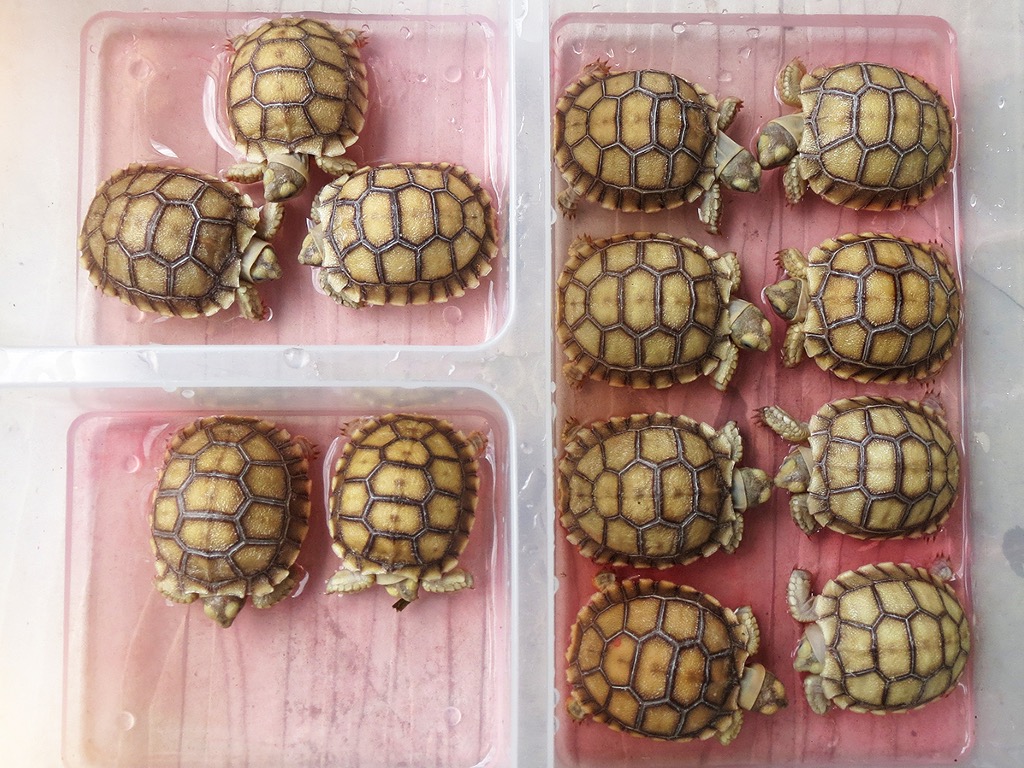Comments
ANIMAL WATCH - Anaheim residents, inspired by West Hollywood’s historic pet sales ban adopted on Monday, have intensified their call for Anaheim to stop hosting the Reptile Super Show, a massive expo where thousands of animals are bought and sold. Held annually at the Anaheim Convention Center, the event is dangerous to animals, biodiversity, and public health.
On Saturday, twenty demonstrators backed by In Defense of Animals and Animal Alliance Network held signs, distributed 250 flyers, and urged visitors to adopt reptiles from shelters and rescues instead of supporting the harmful exotic animal trade. Over 280 Orange County residents have already contacted the City Council urging a ban on the sale and display of exotic animals.

“The Reptile Super Show exploits animals for profit, subjecting them to cramped, unhealthy conditions and extreme stress,” said Lisa Levinson, Campaigns Director at In Defense of Animals. “West Hollywood’s historic ban shows it is possible to protect animals and public health through broad sales restrictions. We urge Anaheim to follow suit and take a stand against these harmful events which exploit animals and spread zoonotic diseases.”
Protesters are calling on the Anaheim City Council to act swiftly and pass a ban like West Hollywood’s, which now has the nation’s most comprehensive animal sales ban. Instead of supporting the harmful exotic animal trade, Anaheim animal retailers and enthusiasts could promote adoption from overwhelmed shelters and rescues, giving homes to animals who are already waiting.
“We encourage people to adopt healthy pets languishing at local animal shelters and rescues, instead of supporting the harmful animal trade,” said Justine Block, attorney and protest organizer. “We’re calling for an end to the sale of reptiles and other captive animals due to the harms of confinement, risk of spreading zoonotic and infectious diseases, and damage to native ecosystems when displaced, exotic pets are abandoned or escape outdoors.”
Block and Levinson have alerted local public health authorities to illegal practices at the Reptile Super Show, including the sale of tortoises and turtles with shells smaller than four inches, which is prohibited by federal law due to salmonella risks.

Reptiles, amphibians, and other exotic species can carry zoonotic diseases like salmonella, which pose serious risks to both humans and other animals. The exotic pet trade also contributes to biodiversity loss, as species are often taken from the wild and sold to private buyers, creating long-term environmental damage.
Federal regulations such as the Animal Welfare Act (AWA) do not offer adequate protection for reptiles, amphibians, and fish, allowing them to be freely traded and sold by breeders and retailers without licensing or proper care standards. As a result, animals at shows endure inadequate housing, transport injuries, stressful handling, malnutrition, disease, and premature death.
A shocking example of this callous treatment is the Reptile Super Show’s “After Party,” where captive reptiles are auctioned off by a reptile keeper association. Animals are often sold in small plastic containers at the noisy event, with no consideration for their wellbeing.
The exotic pet industry is linked to extirpation of vulnerable wildlife populations globally, driven by captive breeding and illegal trafficking, which undermines conservation efforts.
Most expo attendees are unaware of the harms and suffering involved with the exotic animal trade. Many animals are bought with hidden illnesses or die prematurely after purchase. Sellers often pressure buyers into acquiring animals who cannot thrive as companions, and no tank or enclosure can replicate the complex ecosystems where these exotic species live in the wild.
Orange County residents are encouraged to urge the Anaheim City Council to ban the sale and display of exotic animals. Sign here: www.idausa.org/reptiles
(In Defense of Animals is an international animal rescue and protection organization with over 250,000 supporters and a history of defending animals, the environment, and their guardians through education and campaigns, as well as hands-on rescue facilities in India, South Korea, rural Mississippi, and California, since 1983. https://www.idausa.org/campaign/animal-companions)







